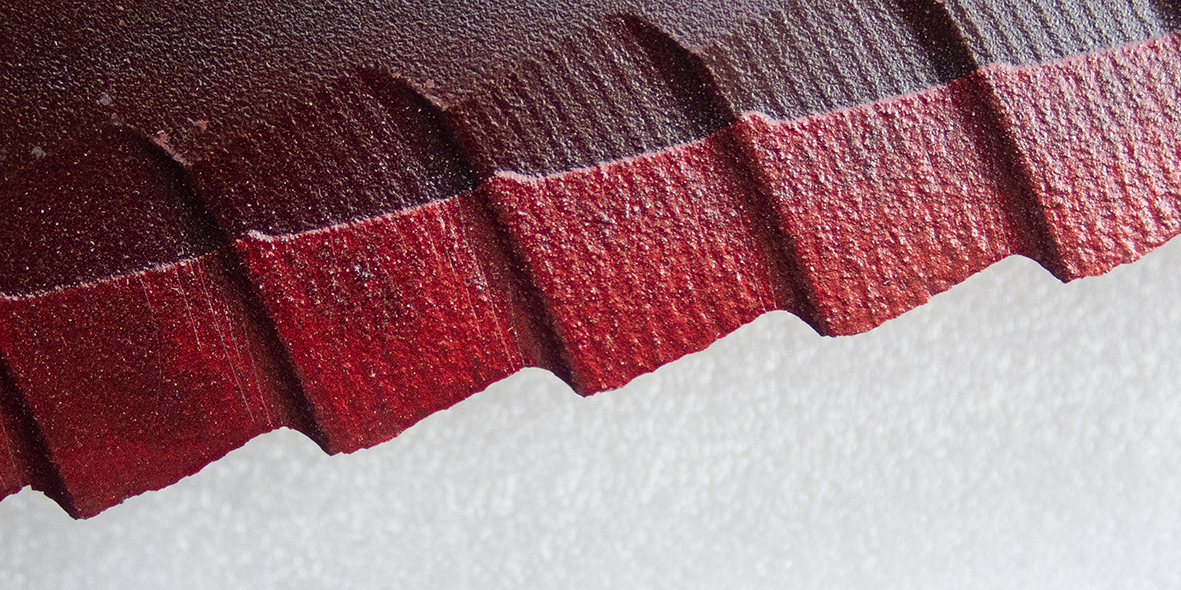Knives And Blades For Unifeed Machines: Do You Know Them?

Few elements such as a series of knives and blades applied to a unifeed mixer - if not more efficient - can cancel out the advantages that a very modern (and very expensive) machine brings to the user.
It happens frequently - more than you think - to be contacted by calls or emails complaining about the lack of effectiveness of the unifeed mixer in use: non-homogeneous rations, forage fibers that are chipped, crushed and ineffective for rumination, wagon processing that takes too long...
Not to mention the effects on the animal's health and milk production.
Fewer liters of milk produced per animal with lower quality (fat and casein), smaller intake of ration with lower nutritional intake and consequently difficult rumination. The health of the animal is also at stake.
Many times the solution to problems is really simple: the knives on your wagon are "finished": they no longer cut, they mix poorly, the ration loses its nutritional and organoleptic quality.
You need to change them, and the machine is reborn: the mixture returns to being perfect and everything settles down (provided there are no other problems)
But do you know the characteristics of a good unifeed knife?
The steels used for the knives used on mixers must have certain characteristics to ensure optimal performance in terms of cutting, resistance and durability. Some of the most notable features include:
- Hardness: The steel must be hard enough to maintain excellent cutting ability. The hardness of knife and blade steel is often measured on the Rockwell scale (HRC). A higher value indicates greater hardness.
- Toughness: Despite its hardness, steel must be tough to withstand stress and impact without breaking. Good toughness is essential to ensure that the knife holds its edge even in harsh conditions. Another case in which toughness is highlighted - low in this case - is when discharging a bale into the hopper, it shears the blade or blades placed on the vertical auger.
- Corrosion resistance: Knife steels can be subject to corrosion, especially if used in the presence of products that can develop chemical aggression on the metal, such as silage. Corrosion resistance is essential to keeping the knife in good condition over time.
- Edge Retention: A good knife steel should be able to hold a sharp edge for an extended period, reducing how often you need to replace it.
- Fine Grain Structure: A fine grain structure in the steel contributes to greater strength and improves the overall performance of the knife.
- Wear resistance: Knife steels must be able to resist mechanical wear caused by repeated contact with more or less hard materials without significant loss of cutting properties.
- Tungsten carbide surface treatment: a significant variation to steel knives are blades with tungsten carbide treatment. Tungsten carbide is a hard metal that is used in the production of cutting tools, giving specific properties to steel in terms of hardness and edge strength. In this way, the life of the tool installed on the mixer wagon is extended. For this reason, many breeders are directed towards this type of blades, even if they have a higher economic value.
- Some types of steel commonly used for knives and blades include stainless steel, carbon steel, and specific alloys such as tungsten steel or vanadium steel.
.jpg)
How do you recognize a quality knife?
It is not simple, the physical characteristics of the blade are not immediately evident and laboratory tests and specific tests are needed to understand the differences.
In www.bladesunifeed.com you will find the most extensive and complete offer of knives and blades for unifeed mixers, selected and tested on many farmers and in many different situations.
